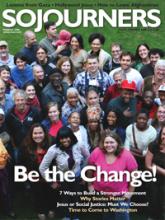I am one of the lucky ones. Every few months I travel to Zambia and meet people who are dealing with AIDS. If that seems contradictory, let me explain: Millions of people in the world’s poorest countries now receive drugs that have saved their lives and brought hope to their communities. Instead of seeing people being carried to the clinics, emaciated and weak, I see relatively healthy patients walking to the pharmacy to receive their next month’s supply of medicine. I see men and women who are able to work and care for their children. I see children who are uninfected, thanks to prenatal intervention, or who know that, although they will always be HIV-positive, it is not a death sentence.
Since the start of PEPFAR (The President’s Emergency Plan for AIDS Relief) five years ago, more than 2 million people have received treatment; millions more pregnant women have been tested and treated to prevent mother-to-child transmission of the virus. While other countries have also been involved, the U.S. response has been most significant.
Organizations such as World Vision, Food for the Hungry, and Compassion International have also been on the forefront of the work. The Roman Catholic, Christian Reform, Nazarene, and Methodist churches, among many others, have all played significant roles.
The change in the last few years is amazing. No longer do funeral processions dominate the roads or lines form for blocks outside clinics. And perhaps most surprising to me is how I, as a U.S. citizen, am treated. Wherever I go, people tell me, “Please thank the American people for sending us the drugs that save our lives.”
I pass on the thanks to you, to the Bush administration, and to Congress, as well as all the churches and nonprofits who have worked tirelessly to provide help to those they may never meet. But I also offer you a challenge.
Read the Full Article
